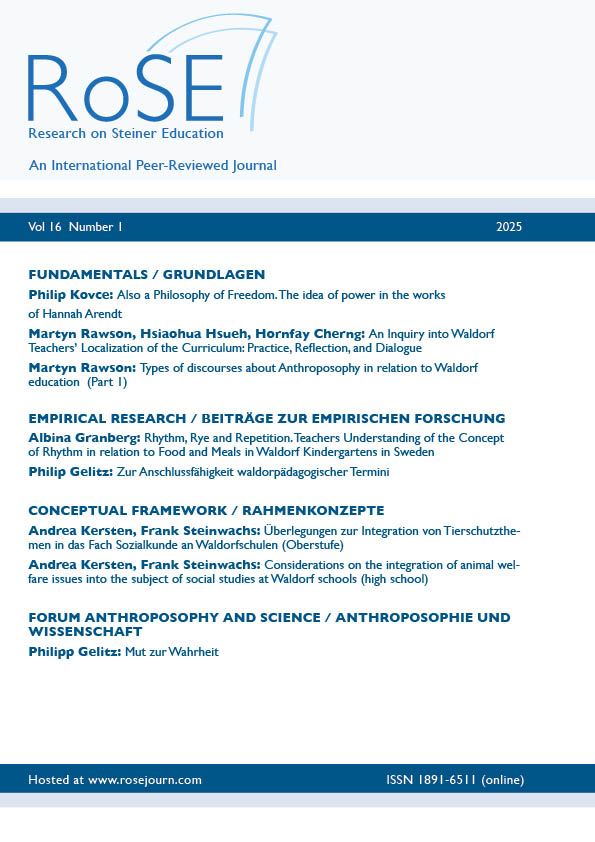Considerations on the integration of animal welfare issues into the subject of social studies at Waldorf schools (high school)
Abstract
The interdisciplinary teaching of social studies, which include cultural, political and economic subjects, culminates in conjunction with the self acquired knowledge and individual ethical attitudes toward environment, culture, politics, society, and economics, that arise out of phenomenological instruction. Thus, within the collective group of social studies are represented the core components of Waldorf education. This grouping of social studies, offers the opportunity to introduce students to topics on a meta-level and to practice and deepen the forms of developmentally appropriate judgment formation, in a manner consistent with other subjects, thus fostering engagement in discourse, toleration of alternative positions, and promotion of self-efficacy and agency.
This article focuses on the increasingly socially discussed relationship between animals, humans, and their habitats, as envisioned through human designed animal studies, their cultural, political, and economic dimensions, and the existential impact on the lives of animals, in a world dominated by humans. Animal welfare issues affect our everyday lives, from our clothing, food, and consumption habits, to our coexistence with pets, the environment and climate. All can be brought to light through the subjects comprising social studies, by exploring the interdependencies between cultural, political and economic topics. The goal of this article is to justify the curricular implementation of animal welfare and animal ethics studies within Waldorf education, in relation to culture, policy and ecological issues; a topic that is also underrepresented outside of Waldorf education.


